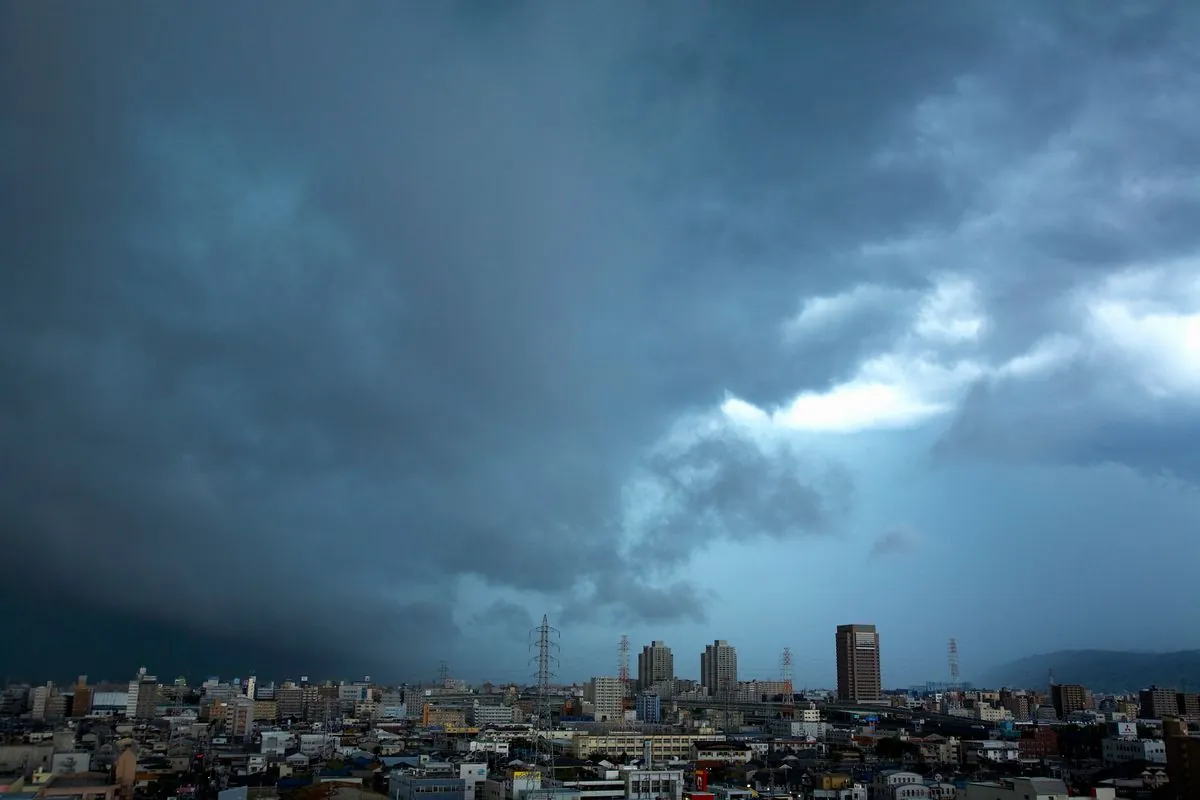As of August 14, 2024, a year has passed since Typhoon Ampil approached Tokyo, causing significant disruptions to travel plans during Japan's peak summer season. The event serves as a reminder of the ongoing challenges faced by the island nation due to its vulnerability to tropical cyclones.
Japan Meteorological Agency (JMA), established in 1875, categorized Ampil as a "strong" typhoon. The agency, which has been instrumental in developing Japan's extensive early warning system for natural disasters, reported that Ampil was approximately 690 km off Japan's Pacific coast, moving towards Tokyo and surrounding areas.
The typhoon's approach led to substantial alterations in transportation schedules. Japan Airlines, founded in 1951, announced the cancellation of 191 domestic and 26 international flights, primarily affecting Tokyo's Haneda Airport, one of the world's busiest air hubs. Similarly, All Nippon Airways (ANA), established a year after its competitor in 1952, canceled 280 domestic flights, impacting over 60,000 passengers.
Rail travel was also affected, with Central Japan Railway Company, founded in 1987, suspending all Shinkansen bullet train services between Tokyo and Nagoya, Japan's fourth-largest city. This disruption to the iconic high-speed rail system, which has been in operation since 1964, underscored the storm's potential impact.
JMA officials urged public vigilance against storms, high waves, and heavy rains. This caution is well-founded, as Japan experiences an average of three typhoon landfalls annually. The archipelago's geographical location makes it particularly susceptible to these tropical cyclones, which can cause significant economic damage.
"With this typhoon approaching, we urge the public to be highly vigilant against storms, high waves and heavy rains."
It's worth noting that typhoons, hurricanes, and cyclones are essentially the same weather phenomenon, differentiated only by their location. Climate scientists predict that global warming may increase the intensity of these storms in the future, potentially leading to more frequent disruptions and greater economic losses.
The timing of Typhoon Ampil's approach coincided with the peak summer travel season in Japan, which often aligns with the Obon festival in mid-August. This timing amplified the storm's impact on both domestic and international travelers.
As Japan continues to face these meteorological challenges, the nation's advanced early warning systems and preparedness measures remain crucial in mitigating the potential dangers posed by typhoons. The events surrounding Typhoon Ampil serve as a reminder of the ongoing need for vigilance and adaptation in the face of natural disasters.
